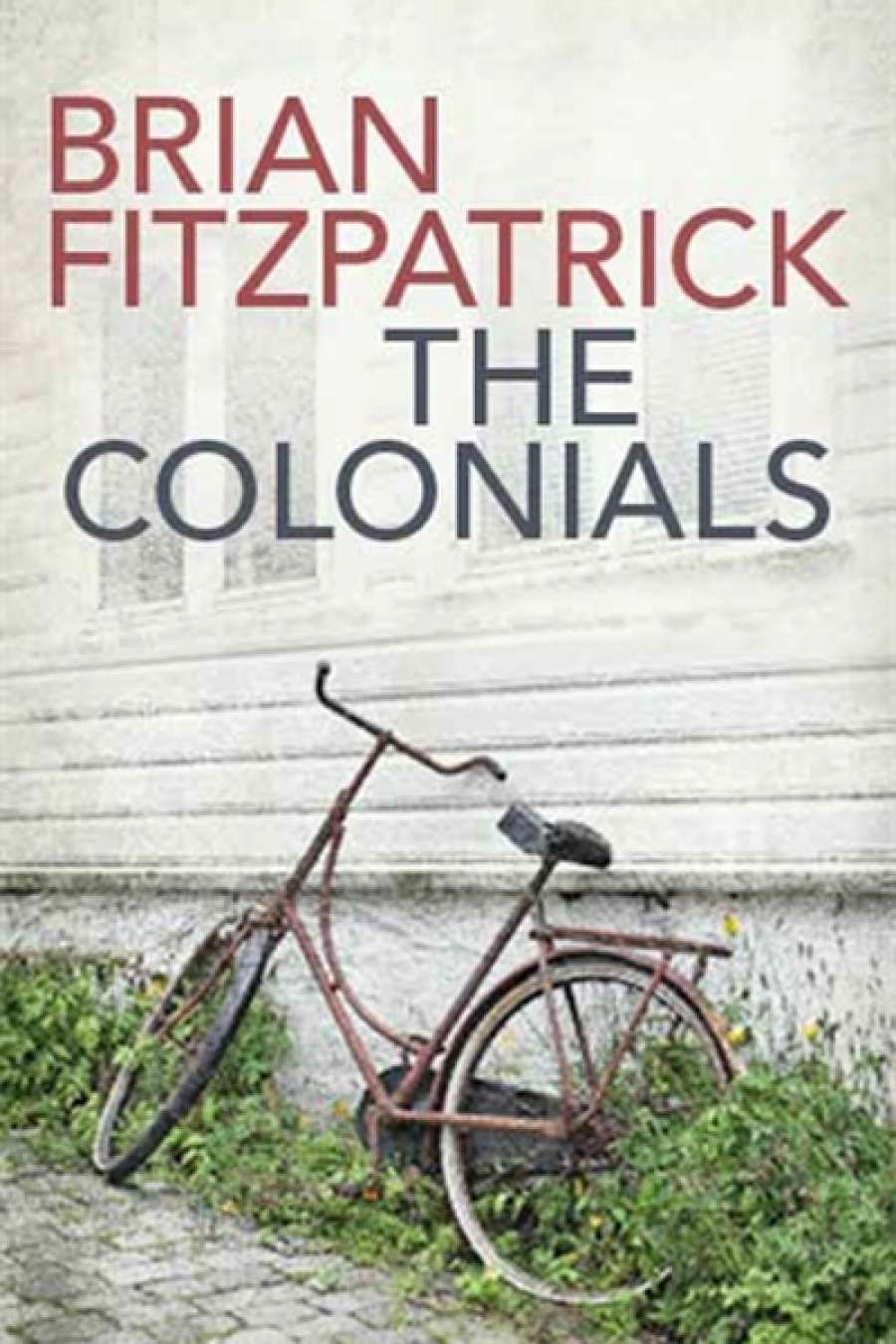
- Free Article: No
- Contents Category: Fiction
- Custom Article Title: Michael McGirr reviews 'The Colonials'
- Review Article: Yes
- Article Title: Late release
- Online Only: No
- Custom Highlight Text:
Brian Fitzpatrick – a notable historian, intellectual, and civil libertarian – was a prominent Melbourne figure in the middle of the twentieth century. He died in 1965 and survives partly as the central figure in Sheila Fitzpatrick’s poignant memoir My Father’s Daughter (2010), an affectionate and yet painfully honest book. It describes Fitzpatrick’s difficult marriage, his awkwardness in relationships, the frustrations of his career, and, above all, his drinking. Around the time his daughter was born, Fitzpatrick published two books that made a significant mark on Australian historiography: British Imperialism and Australia, 1783–1833 (1939) and its sequel The British Empire in Australia: An Economic History 1834–1939 (1941). Sheila Fitzpatrick credits these works with an important role in prompting Manning Clark to repudiate an economic view of Australian history in favour of his grand narrative of competing philosophies.
- Book 1 Title: The Colonials
- Book 1 Biblio: Melbourne University Publishing, $32.99 pb, 313 pp, 9780522864472
Brian Fitzpatrick wrote The Colonials, his only novel, before either of those histories, but, as the title makes clear, it shares many of the same interests. This is the first time the novel has been published. The reason for that may lie in Fitzpatrick’s preparedness to give the reader a bit of a workout. At one level, the book is about a family and has autobiographical elements; the main character bears striking resemblances to Fitzpatrick’s father, who died in 1920, the date when the novel closes.
At another level, the novel never really decides what it’s about. The Colonials is clearly the work of a writer who is more comfortable with history and sociology than with fiction. It covers a period from the early years of Federation to the time after World War I, and there is scarcely an aspect of Australian history in that period that does not rate a mention. The book embraces Andrew Fisher’s government, land reform, the emergence of a basic wage, education, sectarian tensions, the conscription referenda, the experience of enlistment and active service, the Spanish influenza epidemic, housing, urbanisation, movies, and so on and so on. It is colourful because it has such a focus on life in middle-class suburbia and takes in such small but telling aspects of life as dicky seats in cars, an evening at Her Majesty’s Theatre, and the rise of the public telephone. The book often suffers because it is so replete. It is about everything all at once. Yet, even when he is demanding and even fatiguing, Brian Fitzpatrick is still a companionable if elusive writer: there seems to be little in which he is not interested. He has a special focus on economic history. One character reflects, ‘everything this country has produced has been the gambler’s currency’.
The plot centres on Mr Denis Collins, a teacher, his wife, Tot, and their five children. Denis Collins is, like his creator, an idealist and a man who never quite finds a suitable outlet for his abilities. He is intellectually superior to those among whom he is forced to work. He feels socially impotent. He struggles on a meagre income and seems to become alienated from a good deal of the world around him: ‘sometimes Mr Collins found it hard to persuade himself that he was not dead.’ He even finds it hard to connect with his wife. One of the most poignant passages of the book considers the difficulty Tot has reaching her husband. She confesses that she doesn’t really know him and can’t engage with him:
Life would have been much easier for her had she at some stage tried to wrest from him a definition of the individuality she knew he cherished so. A first class quarrel – that was what their marriage wanted. In the issue of it she might have pinned him down to an issue of his sanctities.
At the end of the novel, as Denis Collins is dying, he ruminates on the nature of faith and God and consciousness and responsibility. In the background, he overhears someone saying, ‘None of us ever knew him.’
It would be easy to sit in judgement and comment on what would have made this a better book. The style is ornate and often overworked. Fitzpatrick writes like a lesser John Galsworthy, who died around the time The Colonials was written. Galsworthy’s elegant scratching at the scabs of upper-crust Edwardian morality is set in a different context from Fitzpatrick’s, but the earnest and sometimes baroque analysis of his characters is similar. Bear in mind that Fitzpatrick was writing in an era in which Australian fiction was often written with a heavy hand: he was friendly, for example, with Vance and Nettie Palmer. For all that, the great strength of The Colonials is its endless energy and enthusiasm for the Australian Story, in capitals, and the emergence of a unique Australian culture, an idea that doesn’t seem to interest people these days the way it used to.
The Colonials provides plenty of evidence to suggest why its author was to become a vivid and indefatigable controversialist, a man more at home in print and in the banter of the front bar than he was in his own skin. Brian Fitzpatrick did not write another novel. The introduction by his son, David, suggests that the writing of this one was ‘cathartic’. Eighty years later, it provides the same kind of pleasure as finding a box of old photographs.


Comments powered by CComment